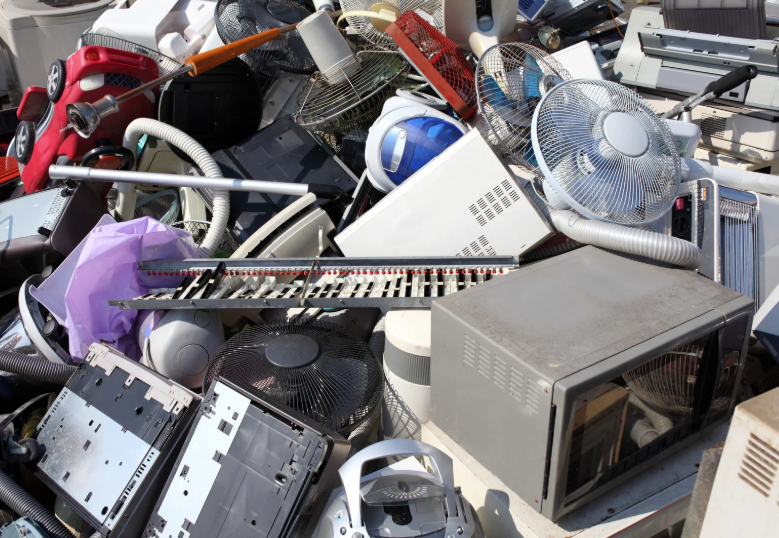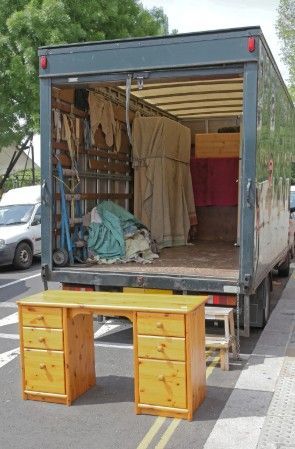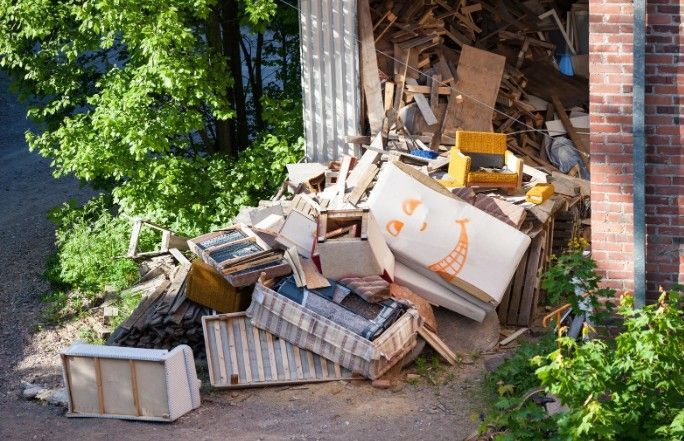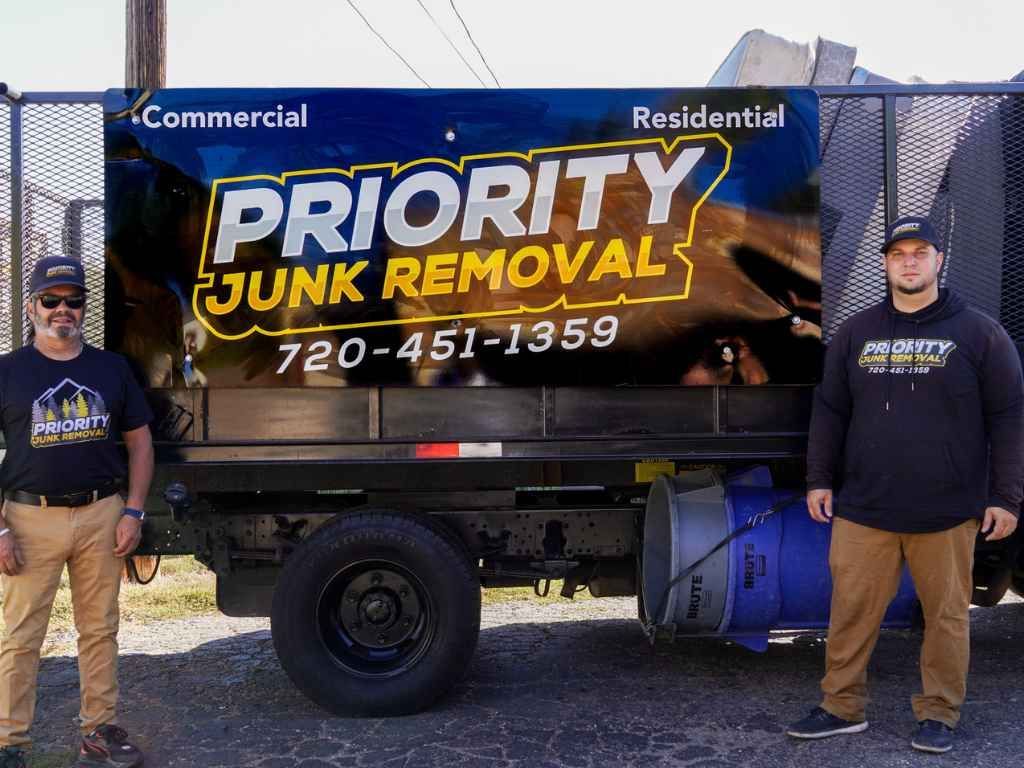How to Handle Electronics Disposal Responsibly
Electronics disposal isn't just about throwing items away. The improper disposal of electronics can lead to a slew of environmental issues, including pollution and resource depletion. Therefore, understanding how to handle electronics responsibly has become more critical than ever. In this article, we will explore how to ensure the proper disposal of electronic waste (e-waste), its environmental implications, and the steps you can take to make sure your old electronics are disposed of in an eco-friendly way.
Proper Electronics Disposal is Crucial
We often think of electronics as objects that hold their value over time. However, once they’re obsolete, they can become dangerous when improperly disposed of. Discarding electronics in landfills or through regular trash collection can result in toxic materials like lead, mercury, and cadmium leaching into the soil and water supply. These substances can pose serious health risks to humans, animals, and the environment as a whole.
Additionally, the components within electronics—such as precious metals, plastic, and glass—can be recycled or repurposed. This reduces the demand for raw materials, conserves energy, and minimizes the overall environmental impact. In other words, responsible disposal not only prevents harmful effects but also contributes to the circular economy.
Understanding the Concept of E-Waste
Electronic waste (or e-waste) refers to discarded electronic devices or components, such as old TVs, computers, phones, tablets, and gaming systems. The term extends to everything from broken appliances to obsolete hardware. E-waste often ends up in landfills, where toxic chemicals leak into the environment, but when handled correctly, it can be a source of valuable materials, such as gold, copper, and aluminum.
The main issue with e-waste is its growth. The rapid pace of technological innovation means consumers are constantly upgrading their gadgets, leaving behind piles of obsolete electronics. The problem isn’t limited to individuals; businesses, organizations, and governments are also responsible for significant amounts of e-waste. As technology evolves, the volume of discarded devices continues to increase, making the management of e-waste even more urgent.
The Impact of E-Waste on the Environment

When e-waste is improperly disposed of, the results can be devastating. The chemicals within electronics can seep into the soil and contaminate water sources, affecting both plant and animal life. For example, cadmium, commonly found in rechargeable batteries, is a highly toxic substance. When not disposed of correctly, it can enter the food chain, harming wildlife and potentially humans.
Moreover, electronics contain materials that are difficult to decompose. Plastics, metals, and circuit boards don’t break down easily, contributing to the growing issue of waste in landfills. The presence of non-biodegradable materials means that landfills are filling up at an alarming rate, creating further waste management challenges.
Donate or Sell Working Electronics
Before discarding your electronics, consider if they can still be of use to someone else. If your devices are still functional, donating them can significantly extend their life. Many charities, schools, and non-profit organizations accept used electronics, which can be refurbished and put to good use.
Alternatively, selling your old devices can help reduce e-waste. Online marketplaces, local buy-and-sell groups, and second-hand stores offer platforms where people can find new homes for used electronics. Not only does this contribute to sustainability, but it also helps to recoup some of the money spent on newer models.
Recycle Your Electronics
If your electronics have reached the end of their useful life, recycling is the next best option. Many electronics contain materials that can be reused in new products, such as glass, metals, and plastics. Recycling reduces the need for mining raw materials and conserves energy.
Check with your local recycling programs to see if they accept electronics. Many areas have designated e-waste recycling events or drop-off points. There are also specialized electronics recycling centers that handle the proper disposal of e-waste, ensuring that harmful substances are safely managed and valuable components are recovered.
Use Manufacturer Take-Back Programs
Some electronics manufacturers offer take-back programs, allowing consumers to return their old devices for recycling. This is especially common with major brands like Apple, Best Buy, and Dell, which have set up initiatives to help customers recycle their devices properly. These programs often offer discounts or incentives for customers who recycle their old products.
By participating in these programs, you ensure that your electronics are being handled responsibly by companies that adhere to environmentally friendly standards.
Look for Certified E-Waste Recyclers
When choosing an electronics recycler, it’s important to work with certified professionals. Certification ensures that the recycler follows proper procedures for handling e-waste and complies with environmental regulations. Look for certifications such as R2 (Responsible Recycling) or e-Stewards, which are recognized standards for responsible recycling practices.
Certified recyclers follow strict guidelines to ensure that electronics are processed in an environmentally responsible manner, protecting both human health and the planet.
Secure Your Personal Data
Before you dispose of any electronics, especially phones, laptops, and tablets, it’s essential to protect your personal data. Simply deleting files or performing a factory reset may not be enough to fully erase sensitive information. To ensure your data is gone for good, use specialized data-erasing software or remove the device’s storage drive and destroy it.
This step is crucial to prevent identity theft or the misuse of your personal information, ensuring that your devices don’t become a liability after they leave your hands.
Creative Ways to Repurpose Electronics
Instead of disposing of electronics, another option is to get creative and repurpose old devices. There are countless ways to turn outdated gadgets into functional or artistic items:
- Old phones: Turn them into security cameras, music players, or digital photo frames.
- Broken computers: Use their parts for DIY tech projects or as a donation to tech students.
- Outdated televisions: Repurpose them as display boards or use the glass for creative art installations.
Repurposing is not only environmentally friendly but can also be a fun and innovative way to breathe new life into old technology.
The Role of Businesses in E-Waste Management
Businesses also play a vital role in e-waste management. Companies that rely heavily on electronics, such as tech firms, schools, and government agencies, should have a clear e-waste disposal plan in place. This plan should include the recycling or repurposing of outdated equipment and the proper disposal of any non-recyclable parts.
By adopting environmentally conscious practices, businesses can help reduce the overall volume of e-waste, contribute to a greener future, and avoid the potential negative impact of improper disposal.
Make a Difference with Responsible Electronics Disposal
Disposing of electronics improperly can lead to harmful chemicals leaching into the environment, polluting soil and water. To address this, responsible disposal practices like recycling, donating, or repurposing can drastically reduce the environmental toll caused by e-waste. By making informed choices about how we discard old electronics, we can help create a more sustainable future.
The rise of e-waste is alarming, with millions of tons of electronics discarded each year. Yet, many people still lack awareness about the dangers of improper disposal. Through recycling and the use of certified e-waste management services, electronics can be processed in a way that protects both our health and the environment. Opting for responsible disposal methods ensures that harmful substances are contained, while valuable materials like metals and plastics are reused in the production of new items.
The Environmental Consequences of Improper Electronics Disposal
While technology keeps advancing, the problem of e-waste grows alongside it. Improper disposal of old electronics results in environmental damage, as toxic substances like lead, mercury, and cadmium leak into the earth, poisoning ecosystems. These hazardous chemicals can infiltrate water sources, harming both wildlife and human populations. By improperly discarding electronics, we contribute to these issues, creating long-lasting environmental harm. The best solution? Responsible electronics disposal.
Recycling programs and certified e-waste handlers have been put in place to mitigate these risks. These recycling programs ensure that harmful substances are safely processed and valuable materials are reused. By disposing of electronics responsibly, we are not only safeguarding our environment but also conserving resources that are essential for future production.
How to Safeguard Your Data When Disposing of Electronics
Before you dispose of any electronics, it’s essential to consider the data stored on them. Smartphones, computers, and other devices often contain sensitive personal information that can be accessed by those with ill intent if not properly wiped. Simply deleting files or resetting a device doesn’t always ensure that data is erased. For peace of mind, it’s best to use certified data-erasing tools or physically remove and destroy storage drives before disposal.
Protecting your personal data when disposing of electronics is not only a precautionary measure but a responsibility. Electronics like old phones and laptops may have financial records, personal photos, or even professional data that could be used for identity theft.
Conclusion
Handling electronic waste (e-waste) responsibly is essential for reducing environmental harm and conserving valuable resources. Every year, millions of tons of e-waste end up in landfills, releasing harmful chemicals and metals into the soil and water. By choosing to recycle, donate, or repurpose your old electronics, you can help minimize this environmental impact and support a more sustainable future.
At Priority Junk Removal, we specialize in eco-friendly e-waste removal services, ensuring that your old devices are disposed of safely and responsibly. Whether you're
clearing out outdated gadgets from your home or need large-scale business electronics removal, we’ve got you covered. Our team carefully sorts and processes each item to maximize recycling and minimize waste. For more information or to schedule an e-waste pickup, contact Priority Junk Removal at: 6091 South Spotswood Street, Littleton, Colorado 80120, United States, contact number 720-451-1359, priorityjunkremoval@gmail.com.











